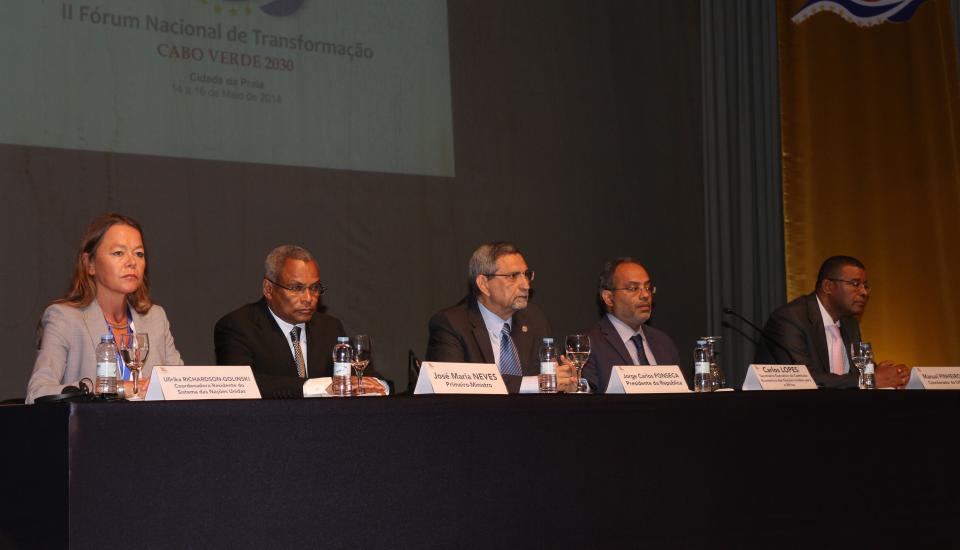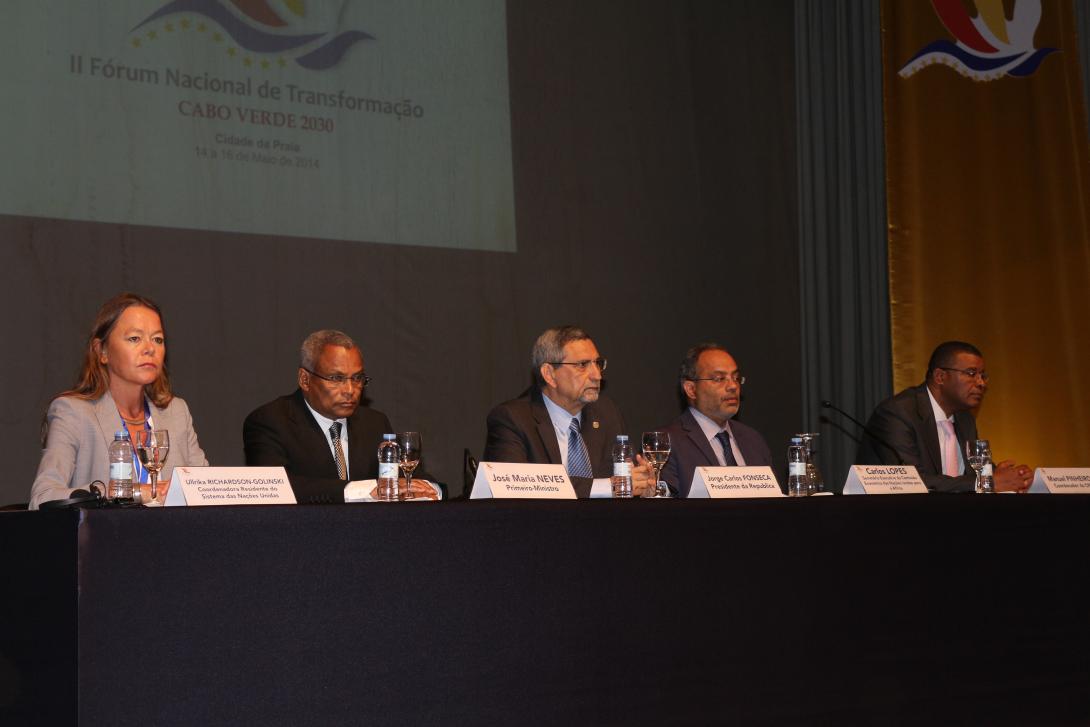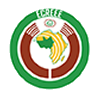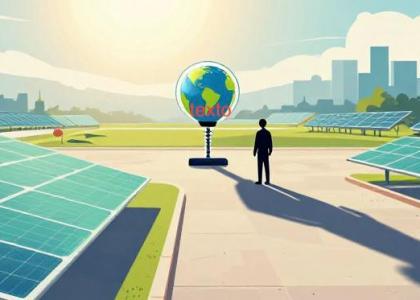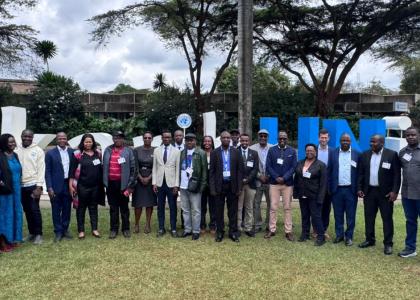The second National Forum designed to evaluate the “Transformation agenda” of Cape Verde was held from 14th to 16th May 2014. The high profile meeting explored the Country's future economic prospects from now against year 2030, reviewed pertinent strategies and policies, and seek creative and innovative ideas to accelerate the Transformation Agenda. The conclave further outlined the crucial role to be played by key institutions and partners and forged a consensus on involving social foundations in supporting the future pathway, with a view to helping Cabo Verde reach the level of advanced middle-income country.
Speaking at the opening session of the forum, the President of Cabo Verde, Jorge Carlos Fonseca, highlighted the importance of the Second National Forum and used the occasion to remind Government officials that the country could only join the Group of developed countries with an accelerated economic growth.
In his address at the end of a special session marking the end of the National forum, the Executive Secretary of the United Nations to Africa, Carlos Lopes - a Guinean national criticized the Government policy of Prime Minister, José Maria Neves, for what he described as "almost exclusive gambling, in partnership with the European Union, in order to transforming Cape Verde, into a Portuguese financial offshore ".
The second National Forum was promoted by the Government through the Centre for Strategic Policies (CPE) on the theme "Cabo Verde 2030". During the forum, the ECOWAS Commission President, Kadre Desire Ouedraogo, presented a paper at a special session entitled "Regional Integration and the transformation of Cabo Verde" chaired by the former President of the National Assembly, Aristides Lima, in collaboration with Regional bodies. During his visit to the country, the ECOWAS Commission President, His Excellency Kadre Desire Ouedraogo, held series of meetings on the issue of regional integration with the President of the Republic of Cabo Verde, Jorge Carlos Fonseca, the Prime Minister of Cape Verde, Dr. Jose Maria Neves and the Minister of Foreign Affairs, Jorge Borges.
President Ouedraogo also visited the ECREEE headquarters as well as the Institute of West Africa.
It would be recalled that First National Forum designed to pave the way for the Transformation of the Cape Verde economy by 2030 was held about 11 years ago in 2003. The three day gathering was graced by government officials representatives of various political parties, the private sector, legislators, Civil Society organizations, Local and foreign experts, representatives of foreign countries and international organizations including the United Nations which funded the forum through its transformation agenda for UN member countries particularly those in Africa . The participants held substantive dialogue on the state of the Cabo Verde economy and designed relevant strategies for economic transformation.
The forum came at the time when the Cabo Verde Government just completed the first year of its first term, having arranged a series of strategic exercises, including Major Planning Options, the Interim Strategic Plan for Poverty Reduction (IPRSP) and retreat for Government officials. These activities according to government officials were designed to strengthen the country's productive base with a view to expediting economy growth.
However, in spite of the impressive performance of the Cabo Verde economy as published by the African Development Bank, the country according to experts still face some emerging challenges, key amongst them is the regression of the country's economic growth. This has been apparently manifested by the decline of the country's GDP growth from 5.1 percent in 2011 to 4.3 percent in 2012 according to the estimates of the Banco de Cabo Verde (BCV).
The Bank also estimates a reduction in domestic demand, private sector consumption and investment. The Construction and agriculture sectors, as well as public consumption/expenditure and tax revenue levels also registered a decrease in 2012, though with signs of improvement in 2013. Regarding remittances, the ADB data indicates a reduction of about 8 percent of GDP, as a result of a decline in remittances from the Eurozone, which represents the main portion of money transfers to Cabo Verde.

